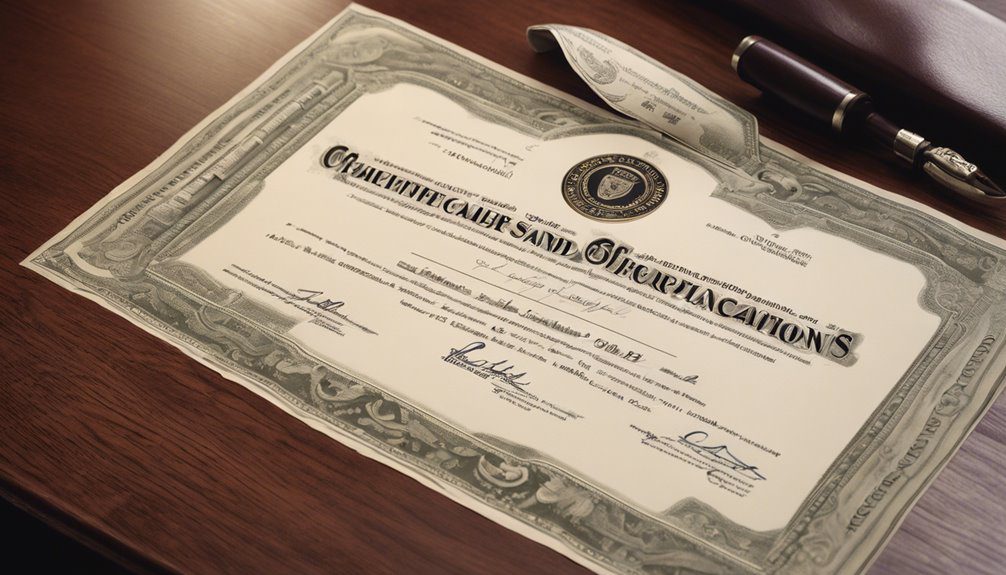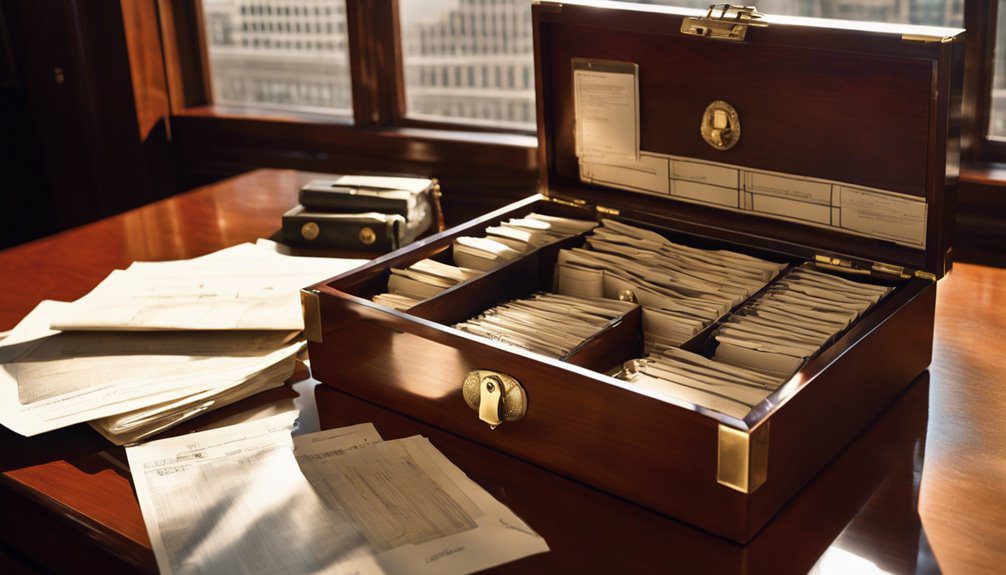When you're navigating the complexities of employing a Professional Employer Organization in South Carolina, understanding the SC Professional Employer Organization Special Deposit Bond is essential. This bond not only ensures compliance with state regulations but also acts as a safety net for payroll taxes and employee benefits. You might wonder how this financial guarantee impacts your operations and what steps you need to take to secure one. As we explore this topic, you'll uncover key insights that could significantly influence your business decisions.
Understanding Special Deposit Bonds

When it comes to navigating the world of Professional Employer Organizations (PEOs), understanding special deposit bonds is crucial. These bonds serve as a safety net for both the PEO and the clients it serves. Essentially, a special deposit bond guarantees that the PEO will meet its financial obligations, particularly in relation to payroll taxes and employee benefits.
You need to know that when a PEO enters a contract with a client, it assumes certain responsibilities. A special deposit bond ensures that funds are set aside to cover these obligations, providing peace of mind for all parties involved. If the PEO fails to fulfill its duties, the bond can be used to cover any outstanding liabilities.
It's important to recognize that these bonds are typically required by state regulations, varying depending on the jurisdiction. The process for obtaining a special deposit bond involves submitting an application and paying a premium, which can fluctuate based on your business's financial health and history.
Understanding these elements will help you make informed decisions as you engage with a PEO, ensuring you're fully prepared for any financial commitments that come your way.
Importance of Special Deposit Bonds
Special deposit bonds play a vital role in the operations of Professional Employer Organizations (PEOs) and their clients, offering essential financial security.
These bonds ensure that PEOs can meet their obligations to clients and employees, fostering trust and stability in the workforce. When you engage a PEO, you want to know that they're financially reliable, and special deposit bonds provide that assurance.
By securing a special deposit bond, PEOs demonstrate their commitment to compliance with state regulations and financial responsibilities. This not only protects your interests as a client but also enhances the overall credibility of the PEO in the market.
You'll find that businesses are more likely to choose a PEO with a strong bond in place, as it reflects a higher level of professionalism and reliability.
Moreover, these bonds help ensure that funds are available for payroll and employee benefits, minimizing the risk of disruptions.
In today's competitive landscape, having that extra layer of financial backing can set a PEO apart from others.
How Special Deposit Bonds Work

Understanding how special deposit bonds work is crucial for both Professional Employer Organizations (PEOs) and their clients. These bonds serve as a financial guarantee that you're meeting your obligations, particularly in terms of payroll taxes and employee benefits.
When you secure a special deposit bond, you essentially provide a specified amount of money to a state authority, which acts as collateral. If your PEO fails to meet its obligations, the state can access these funds to cover any unpaid taxes or benefits owed to employees. This not only protects the employees but also ensures compliance with state regulations.
The bond amount varies depending on your PEO's size and the number of employees you have, so it's essential to assess your specific needs. Once you obtain the bond, maintaining it requires regular checks and, occasionally, adjustments based on changes in your business.
You'll also need to renew the bond periodically, ensuring continued compliance with state requirements. By understanding this process, you can navigate the complexities of your obligations and safeguard your business's reputation and financial health. Furthermore, working with an experienced bonding team can help streamline the process of obtaining and managing your special deposit bond.
Regulatory Requirements in South Carolina
In South Carolina, PEOs must adhere to specific regulatory requirements to ensure compliance and maintain their operations.
First, you'll need to register with the South Carolina Department of Consumer Affairs. This involves submitting an application and providing necessary documentation, including proof of insurance and your organizational structure.
Additionally, you must maintain a special deposit bond, which acts as a financial guarantee for your obligations to clients and employees. The bond amount is determined based on your business's specific needs, and it serves as a safety net for claims that may arise.
You'll also need to comply with state tax regulations, ensuring proper withholding for employees. It's essential to stay updated with payroll taxes and other employer obligations, as failure to do so can lead to serious penalties.
Moreover, PEOs in South Carolina must ensure that they meet all local ordinances and federal regulations. Surety bonds are often utilized by various businesses, including PEOs, to provide financial assurance and compliance with state mandates.
Regular audits may be required to confirm compliance, so keep accurate records and documentation.
Benefits for PEOs and Clients

Partnering with a Professional Employer Organization (PEO) brings numerous advantages for both the PEO and its clients. For businesses, it means access to expert HR services, allowing you to focus on your core operations. By outsourcing employee management tasks like payroll, benefits administration, and compliance, you can streamline your processes and reduce administrative burdens.
On the PEO side, you gain a broader client base and increased revenue opportunities. Offering comprehensive HR solutions makes your services more attractive, helping you stand out in a competitive market. Moreover, working with multiple clients allows PEOs to negotiate better rates with insurance providers and benefit vendors, ultimately saving costs for your clients.
Your clients also benefit from improved employee satisfaction and retention. With access to competitive benefits packages typically reserved for larger companies, employees feel valued and engaged. This boosts morale and productivity, contributing to a healthier workplace culture.
Additionally, by staying up-to-date with ever-changing labor laws and regulations, PEOs help clients mitigate risks and avoid costly penalties.
Common Misconceptions About Bonds
Often misunderstood, bonds associated with Professional Employer Organizations (PEOs) play a crucial role in ensuring compliance and financial security. Many people think that bonds are just insurance policies, but that's not the case. Bonds provide a guarantee that a PEO will fulfill its obligations, protecting clients and employees in case of defaults or mismanagement.
Another common misconception is that all bonds are the same. In reality, there are various types, each serving unique purposes. A Special Deposit Bond, for instance, specifically guarantees compliance with state regulations.
Some also believe that obtaining a bond is a lengthy and complicated process. While it does require due diligence, many PEOs find that with the right guidance, they can secure a bond relatively quickly.
Lastly, it's a myth that only large PEOs need bonds. Regardless of size, any PEO that manages payroll, taxes, and employee benefits should consider bonding as a protective measure. Debt consolidator bonds also serve a similar purpose in protecting consumers and ensuring compliance in financial services.
Understanding these misconceptions helps you appreciate the significance of bonds in the PEO landscape, ensuring you make informed decisions for your business and clients.
Steps to Obtain a Special Deposit Bond

Securing a Special Deposit Bond involves a few essential steps that can streamline the process for your PEO.
First, you'll want to gather all necessary documentation, including your business financials, tax information, and any licenses or permits. This information will help potential sureties assess your risk and determine the bond amount.
Next, research various surety companies that specialize in Special Deposit Bonds. It's crucial to compare rates and terms, so don't hesitate to reach out to multiple providers.
Once you've selected a surety, fill out their application form thoroughly. Be prepared to provide your gathered documentation and answer questions about your business.
After submitting the application, the surety will review your information and may conduct a background check. If approved, you'll receive a bond quote.
Make sure to read the terms carefully before signing. Once you agree, pay the premium to activate the bond.
Conclusion
In conclusion, the SC Professional Employer Organization Special Deposit Bond is vital for ensuring payroll tax compliance and protecting employee benefits. By securing funds as collateral, it builds trust between PEOs, clients, and employees. Understanding its importance and how it works can help you navigate the regulatory landscape effectively. If you're a PEO or client, obtaining this bond not only enhances your credibility but also safeguards your workforce, ensuring smooth operations and peace of mind.


